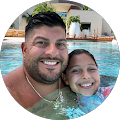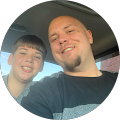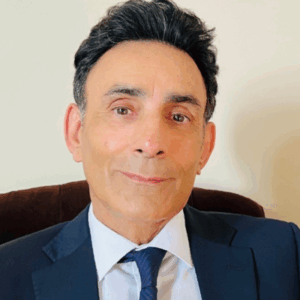

Substance use rates in Kentucky have trended upward for the past decade, yet many residents still face long waitlists or must drive hours to find help. Louisville Addiction Center closes that gap by delivering evidence-based, outpatient drug and alcohol rehab in Louisville, KY, that fits real-life schedules.
Instead of uprooting work or family life for weeks on end, clients can receive the same gold-standard therapies—cognitive-behavioral counseling, Medication-Assisted Treatment (MAT), and trauma-informed care—while sleeping in their own beds at night.
The result is a clinically robust, flexible option backed by a multidisciplinary team and proven outcomes.
| Feature | Details |
|---|---|
| Evidence-Based Care | Treatment plans rely on FDA-approved medications, CBT, DBT, and relapse-prevention training—approaches endorsed by the National Institute on Drug Abuse and SAMHSA. |
| Licensed, Multidisciplinary Team | Board-certified physicians, psychiatric nurse practitioners, and master’s-level therapists collaborate on each care plan, ensuring medical safety and psychological depth. |
| Holistic Options | Yoga, mindfulness, and nutrition counseling complement clinical work, addressing stress, sleep, and overall well-being—key relapse triggers often missed in traditional programs. |
| 5-Star Google Rating | Dozens of public reviews highlight compassionate staff, clear communication, and life-changing outcomes—proof that quality care leaves a measurable imprint on the community. |
| Same-Day Assessments & Fast Insurance Verification | A dedicated admissions line offers real-time benefit checks with major insurers or transparent private-pay quotes, so motivated callers can start PHP or IOP without delay. |
| Central Louisville Location | The East Market Street campus sits near bus routes, restaurants, and recovery meetings, making attendance feasible for clients who rely on public transit or have tight lunch breaks. |
Louisville Addiction Center organizes care on a step-down model, so individuals can start with the structure they need and gradually scale back as sobriety strengthens.
The same multidisciplinary team—physician, therapist, case manager—follows each case from the most intensive schedule to alumni check-ins, keeping goals aligned and records seamless.
This continuity means fewer retellings of personal history, clearer medication management, and steady therapeutic momentum as clients progress through every phase of recovery.

Detox is the medically managed clearing of drugs or alcohol from your body; rehab is the longer-term counseling and skill-building that follows. During detox, the brain and nervous system rebound after months or years of chemical suppression, and that rebound can be dangerous.

When cravings keep overruling your best intentions, sheer willpower rarely carries you to the finish line. That’s why drug treatment in Louisville at Louisville Addiction Center pairs accredited clinicians with evidence-based therapies, turning the turmoil of active use into a clear, step-by-step path to lasting sobriety.

Our partial hospitalization program (PHP) is the most common level of care that we have to offer. Our PHP program for substance abuse treatment in Louisville, KY offers intensive care as well as a flexible schedule that will allow our clients to remain plugged into normal life. During our PHP in Louisville, Kentucky, our clients are in our program for 30 days.

Following PHP, clients might need to continue treatment while getting back to everyday life. Our intensive outpatient program (IOP) offers treatment for several hours throughout the week, yet with more flexibility than PHP. That way, clients can begin to use the skills they learn while tending to other obligations, like family, school, or work.

The outpatient program during Louisville rehab is the least restrictive program we offer. Often, clients meet with a therapist or group for about one hour per week. Most clients in our outpatient program have the skills needed to stay healthy outside of treatment. Yet, they still need to refine their recovery skills in the real world with professional support and guidance.

At Louisville Addiction Center, we offer rehab for veterans in Louisville, Kentucky. As a veterans addiction treatment center, we provide TRICARE addiction treatment for veterans. Veterans have unique needs when it comes to substance abuse and mental health disorders. We understand that and offer specialized treatment.
Lasting change happens when proven medical science meets whole-person wellness. Louisville Addiction Center combines gold-standard clinical interventions with mind-body supports, creating a toolbox that tackles the biological, psychological, and social roots of substance use.
This integrated “how” behind our outcomes gives clients practical skills and measurable relief, not temporary fixes.
Louisville Addiction Center uses Medication-Assisted Treatment for eligible opioid- and alcohol-use disorders. Board-certified physicians can prescribe FDA-approved medications such as buprenorphine or naltrexone to curb cravings and support early stability.
MAT is always combined with individual and group counseling, so medication works hand-in-hand with evidence-based therapy throughout PHP, IOP, and OP levels of care.
Community keeps recovery on solid ground. Louisville Addiction Center offers a structured 12-Step program alongside life-skills training that helps clients manage day-to-day responsibilities after treatment.
Peer support sessions introduce practical tools and shared accountability so participants can practice healthier communication and build confidence before returning to work or school.
Substance use often masks untreated trauma or mood disorders; addressing both is essential for dual diagnosis Louisville, KY cases.
Therapists employ Cognitive Behavioral Therapy to reframe disruptive thought loops, Dialectical Behavior Therapy to strengthen emotion regulation, and Eye Movement Desensitization and Reprocessing for traumatic memory processing.
Sessions are paced to each client’s tolerance and integrated with mindfulness exercises that reduce physiological arousal.
By resolving underlying PTSD, anxiety, or depression alongside addiction, the program lowers relapse risk and supports holistic healing of mind and body.

Chronic alcohol use can disrupt sleep cycles, blood pressure, and family dynamics long before a formal diagnosis.
Our alcohol track begins with a comprehensive assessment and, when indicated, FDA-approved medications such as naltrexone or acamprosate to reduce cravings.
Clients engage in Motivational Enhancement Therapy (MET) to strengthen commitment, plus CBT groups that rehearse refusal skills for high-risk social settings.
Family sessions explore enabling patterns, boundary setting, and healthier communication, ensuring loved ones understand both the biology and psychology of Alcohol Use Disorder.
Relapse-response planning rounds out the program, providing clear benchmarks of progress.
Because each drug class affects the brain differently, our team designs protocols that align pharmacology with psychotherapy.
Across all tracks, clients practice relapse-prevention drills, attend peer-support meetings matched to their substance, and complete personalized aftercare plans that include telehealth follow-ups and alumni mentorship.
Kentucky residents weighing treatment options often compare 24/7 inpatient rehab in Louisville, KY, with Louisville Addiction Center’s step-down outpatient continuum. Inpatient programs provide round-the-clock monitoring inside a residential facility.
At the same time, our PHP, IOP, and OP levels deliver the same evidence-based therapies on a schedule that lets clients sleep at home, keep family routines, and steadily reintegrate into work or school.
Both models aim for lasting sobriety, yet they serve different clinical and lifestyle needs.
Round-the-clock care is the gold standard when safety or medical complexity demands it.
Once stabilization is achieved—typically seven to 14 days—patients may be discharged directly into a Partial Hospitalization Program for ongoing therapy at a lower level of intensity.
Louisville Addiction Center partners with local hospitals and detox units to ensure seamless hand-offs.
| Factor | 24/7 Inpatient Rehab | Louisville Addiction Center PHP / IOP |
|---|---|---|
| Cost Profile | Highest (includes lodging & meals) | Moderate (no room & board) |
| Living Arrangement | On-site residence | Home or sober living |
| Daily Clinical Hours | 6–8 | 3–6 |
| Work/School Flexibility | Limited | Possible |
Yes. Once hospital clearance is received, our team can complete same-day insurance verification and schedule a first session within 24 hours.
Clients may add evening IOP blocks, schedule extra medication checks, or pause the transition and return to a higher level of care—keeping the same therapist and physician throughout.

A direct admissions hotline completes a phone screening to confirm medical stability and level-of-care needs. Team members then verify benefits with major in-network insurers or walk callers through clear private-pay and financing options.
If coverage is confirmed and the client is clinically appropriate for an outpatient setting, a start date for Partial Hospitalization (PHP) or Intensive Outpatient (IOP) can be scheduled—often within 24 hours.
Paperwork is handled electronically, allowing most clients to arrive on day one with authorizations in place and no surprise costs.

Louisville Addiction Center uses a step-down model, so the time you spend on campus decreases as you gain stability.
PHP: Runs five days a week, about five to six hours per day, combining group therapy, individual counseling, and medication support.
IOP: Offers three-hour sessions three to five days weekly, blending group work, individual check-ins, and medication management when needed.
OP & Continuing Care: Provides flexible, part-time appointments that fit around work or school, with clinical touchpoints adjusted to each person’s goals.

Addiction rarely affects only one person, so the program invites relatives into the process. Weekly education nights explain the science of substance use, boundary-setting, and communication strategies.
A designated family liaison provides phone check-ins to update loved ones on progress and gather their observations. When appropriate, boundary-coaching sessions help families create supportive home environments without enabling.
These services equip relatives to reinforce new coping skills and maintain accountability long after formal treatment ends.
Louisville Addiction Center keeps lines of communication open from start to finish, ensuring clients, families, and payers always know the next step on the path to lasting, evidence-based recovery.

Louisville Addiction Center operates at 827 E. Market Street, placing treatment sessions in one of the city’s most accessible neighborhoods. The central address allows many clients to reach appointments without long commutes, then return home or to work the same day—an important advantage for an outpatient model.
Inside, the facility balances privacy and calm. Separate rooms host individual counseling and small-group discussions, while larger multipurpose areas accommodate mindfulness, yoga, and other holistic activities offered in the program schedule.
Between sessions, clients can step into quiet common spaces designed for reflection or casual conversation with peers. Together, these features create an environment that supports focused clinical work and whole-person wellness without the isolating feel of a hospital setting.
Quick-Look Amenities
Hear directly from those who have walked the path to recovery. Our patients’ stories highlight the compassionate care, effective programs, and life-changing support they’ve experienced. Let their journeys inspire you as you take your first steps toward healing.
Whether you are stepping down from inpatient rehab, returning after a lapse, or beginning treatment for the first time, Louisville Addiction Center offers programs that align with your goals, daily responsibilities, and family life.
Reach out today and take the first step toward lasting recovery.
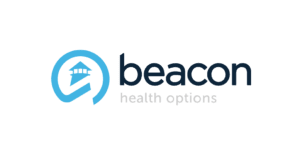
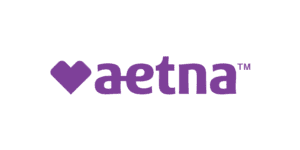

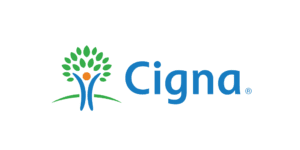
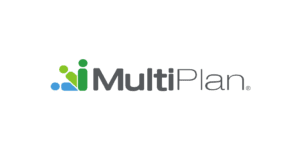
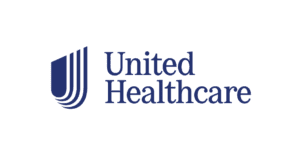
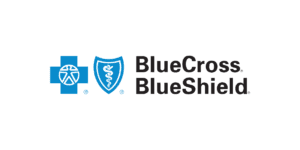
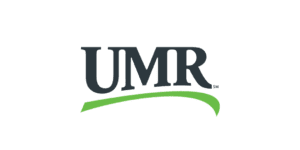
Look for changes that cluster together rather than one-off slip-ups: increasing tolerance (needing more of the substance to get the same effect), withdrawal symptoms when they try to cut back, neglected work or school responsibilities, recurring legal or financial trouble, and strained relationships with family or friends.
Physical cues—unexplained weight change, bloodshot eyes, or chronic fatigue—often appear alongside mood swings such as irritability, anxiety, or depression.
If two or more of these warning signs persist for more than a few weeks, it’s a strong indicator that a professional assessment is the safest next step.
Pick a calm moment—never the height of a crisis—to express concern using “I” statements (“I’ve noticed you’re missing classes,” “I’m worried about your health”). Come prepared with practical options, like Louisville Addiction Center’s admissions phone number and a brief explanation of its outpatient levels of care.
Offer to help with logistics: making the initial call, sitting in on the assessment, or arranging transportation.
Avoid ultimatums unless safety is at risk; instead, emphasize support and specific resources. Encouragement paired with concrete information often breaks through denial and makes starting treatment feel less overwhelming.
Louisville’s treatment landscape spans hospital-run detox units, long-term residential inpatient rehab facilities in Louisville, KY, and multiple outpatient programs.
Outpatient care is divided into three tiers: Partial Hospitalization (PHP) for full-day therapy, Intensive Outpatient (IOP) for multi-hour blocks, and standard Outpatient (OP) for once-weekly sessions.
Louisville Addiction Center operates across all three outpatient tiers, providing evidence-based care without overnight stays but coordinating with local hospitals when medical detox or psychiatric stabilization is required.
This continuum lets many Kentuckians receive top-tier services without leaving home, work, or school for weeks at a time.
It really depends on your pace and needs. Most people spend three to six weeks in PHP, coming in five days a week.
IOP is a bit lighter—three to five sessions a week for six to ten weeks, with morning or evening options.
OP is the most flexible; you might meet once a week for a few months and then taper down to monthly alumni check-ins. Louisville Addiction Center checks in on your progress every two weeks. If you’re moving ahead faster, we shorten the timeline; if you need extra support, we extend it.
You never pay for sessions you don’t need—and you never “graduate” before you’re truly ready.
Yes, most commercial carriers cover some portion of substance abuse treatment Louisville residents receive, including PHP, IOP, OP, and Medication-Assisted Treatment (MAT).
Upon initial contact, the admissions team submits a real-time eligibility check, breaks down deductible and copay estimates, and explains any prior-authorization requirements.
If your plan is out-of-network or you’re uninsured, staff will quote flat self-pay rates and discuss third-party financing partners.
Transparent cost discussions happen before the first appointment, so you can commit to treatment without surprises or hidden fees.
Absolutely. Louisville Addiction Center’s IOP offers morning blocks (9 a.m.–12 p.m.) and after-work blocks (5 p.m.–8 p.m.), each three hours long, three to five days a week.
This design lets clients clock in at their jobs, attend college classes, or manage caregiving duties while still receiving structured therapy, medication checks, and drug screens.
Case managers can supply work-release letters or assist with Family and Medical Leave Act (FMLA) paperwork if you need formal job protection during treatment.
Inpatient rehab provides 24/7 residential care, including room, board, and around-the-clock nursing—ideal for acute medical detox or severe psychiatric crises.
PHP delivers identical core treatments—group therapy, individual sessions, MAT consults, and holistic classes—but operates five to six daytime hours, Monday through Friday, allowing you to return home each night.
Because PHP doesn’t charge for lodging or meals, it typically costs less and helps clients practice recovery skills in real-world environments sooner.
Yes. Roughly half of clients entering addiction treatment centers in Louisville, KY, have a co-occurring mood or anxiety disorder.
Louisville Addiction Center staffs psychiatric nurse practitioners and master’s-level therapists trained in CBT, DBT, and EMDR. Integrated care means mental health assessments, medication management, and trauma-focused counseling run alongside substance-use therapy, giving equal weight to both conditions and lowering relapse risk.
During your medical intake, a board-certified physician reviews your substance history, withdrawal patterns, and overall health.
If you’re dealing with opioid or alcohol dependence, the provider may recommend FDA-approved medications such as buprenorphine, extended-release naltrexone, or acamprosate.
MAT is always paired with psychotherapy and regular lab work. Dosages are monitored weekly in PHP, bi-weekly in IOP, and monthly in OP to ensure safety and effectiveness.
Yes. Graduates transition into a free alumni network that hosts monthly peer-support meetings, quarterly social events, and on-demand telehealth check-ins. Alumni remain welcome at holiday gatherings and can re-enter higher levels of care quickly if new life stressors threaten sobriety.
This built-in safety net helps clients maintain momentum long after formal sessions end, reinforcing Louisville Addiction Center’s commitment to lifelong recovery support.
That depends on the program you’re in. In PHP, you’ll have a private therapy session and a medication check every week—plus daily group work. IOP scales back a bit: one-on-one therapy once a week and a quick med visit every seven to ten days.
In OP, meetings spread out to a weekly counseling slot and medical check-ins every couple of weeks (sometimes monthly once things are stable).
These regular touchpoints let us tweak meds right away, sharpen coping skills, and bump you up in care if anything starts to slip.
Louisville Addiction Center’s clinical menu includes Cognitive Behavioral Therapy (CBT) for thought-pattern restructuring, Dialectical Behavior Therapy (DBT) for emotion regulation, and Eye Movement Desensitization and Reprocessing (EMDR) for trauma processing. Medication-Assisted Treatment supports opioid or alcohol recovery, and therapists weave in Motivational Enhancement techniques to strengthen commitment.
Holistic options—yoga, guided meditation, and nutrition coaching—address sleep, stress, and overall wellness.
Life-skills workshops cover budgeting, résumé building, and relapse-prevention planning, rounding out a toolbox that targets both the biological and practical sides of sobriety.
One phone call can open the door to evidence-based outpatient care in Louisville. Reach our admissions team at 502-586-4554 or email us for a prompt reply. During that first conversation, we will:


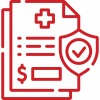

Centers for Disease Control and Prevention. (2023, June 15). Alcohol and public health: Alcohol-related disease impact (ARDI). https://www.cdc.gov/alcohol/index.htm
National Institute on Drug Abuse. (2023, September). Overview of treatment for substance use disorders. U.S. Department of Health and Human Services, National Institutes of Health. https://nida.nih.gov/publications/drugfacts/treatment-statistics
Substance Abuse and Mental Health Services Administration. (2022). Key substance use and mental health indicators in the United States: Results from the 2021 National Survey on Drug Use and Health. https://www.samhsa.gov/data/report/2021-nsduh-annual-national-report
Substance Abuse and Mental Health Services Administration. (2023). National survey of substance abuse treatment services (N-SSATS): 2023 state profile report (Kentucky). https://www.samhsa.gov/data/sites/default/files/reports/state_profiles/KY_2023_NSSATS.pdf
World Health Organization. (2022). Guidelines for the identification and management of substance use and substance use disorders in primary care. World Health Organization. https://www.who.int/publications/i/item/9789241550649
Volkow, N. D., & Koob, G. (2015). Brain disease model of addiction: Why it matters. The New England Journal of Medicine, 373(4), 391–393. https://doi.org/10.1056/NEJMp1508511
McLellan, A. T., Lewis, D. C., O’Brien, C. P., & Kleber, H. D. (2000). Drug dependence, a chronic medical illness: Implications for treatment, insurance, and outcomes evaluation. JAMA, 284(13), 1689–1695. https://doi.org/10.1001/jama.284.13.1689

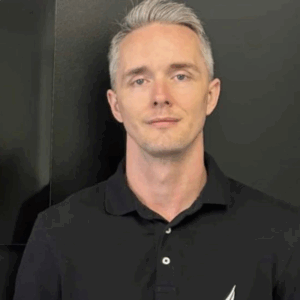
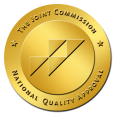
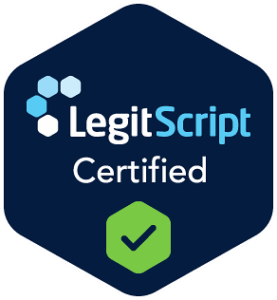
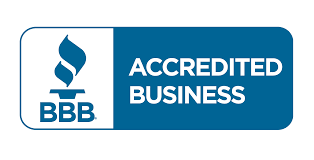


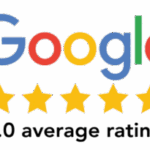

Centers for Disease Control and Prevention. (2023, June 15). Alcohol and public health: Alcohol-related disease impact (ARDI). https://www.cdc.gov/alcohol/index.htm
National Institute on Drug Abuse. (2023, September). Overview of treatment for substance use disorders. U.S. Department of Health and Human Services, National Institutes of Health. https://nida.nih.gov/publications/drugfacts/treatment-statistics
Substance Abuse and Mental Health Services Administration. (2022). Key substance use and mental health indicators in the United States: Results from the 2021 National Survey on Drug Use and Health. https://www.samhsa.gov/data/report/2021-nsduh-annual-national-report
Substance Abuse and Mental Health Services Administration. (2023). National survey of substance abuse treatment services (N-SSATS): 2023 state profile report (Kentucky). https://www.samhsa.gov/data/sites/default/files/reports/state_profiles/KY_2023_NSSATS.pdf
World Health Organization. (2022). Guidelines for the identification and management of substance use and substance use disorders in primary care. World Health Organization. https://www.who.int/publications/i/item/9789241550649
Volkow, N. D., & Koob, G. (2015). Brain disease model of addiction: Why it matters. The New England Journal of Medicine, 373(4), 391–393. https://doi.org/10.1056/NEJMp1508511
McLellan, A. T., Lewis, D. C., O’Brien, C. P., & Kleber, H. D. (2000). Drug dependence, a chronic medical illness: Implications for treatment, insurance, and outcomes evaluation. JAMA, 284(13), 1689–1695. https://doi.org/10.1001/jama.284.13.1689

















Get Family Support Now
We understand addiction affects the whole family. Our comprehensive family program helps rebuild trust and restore relationships.
Weekly Family Therapy Sessions
Educational Workshops
Support Groups
Communication Skills Training


Louisville Addiction Center is helping people in Kentucky overcome addiction and mental health challenges.






